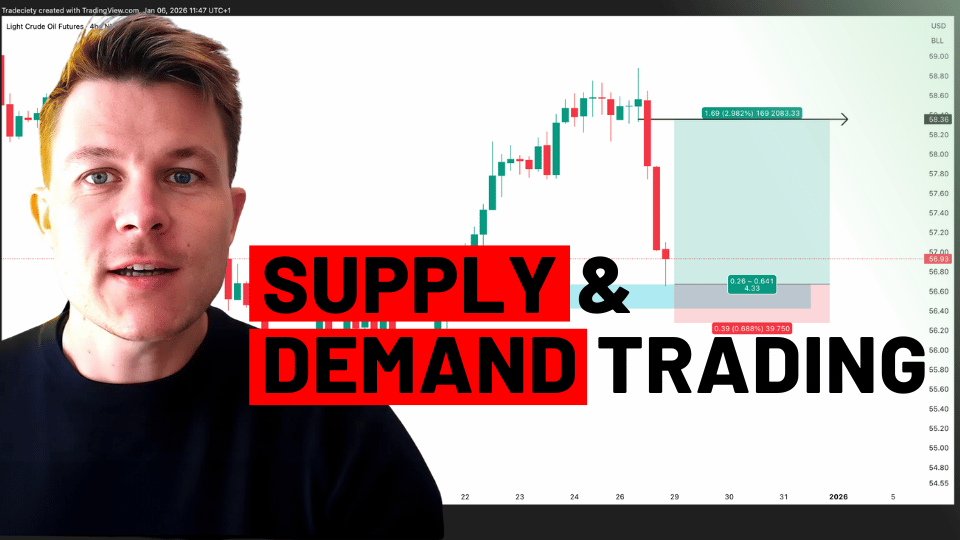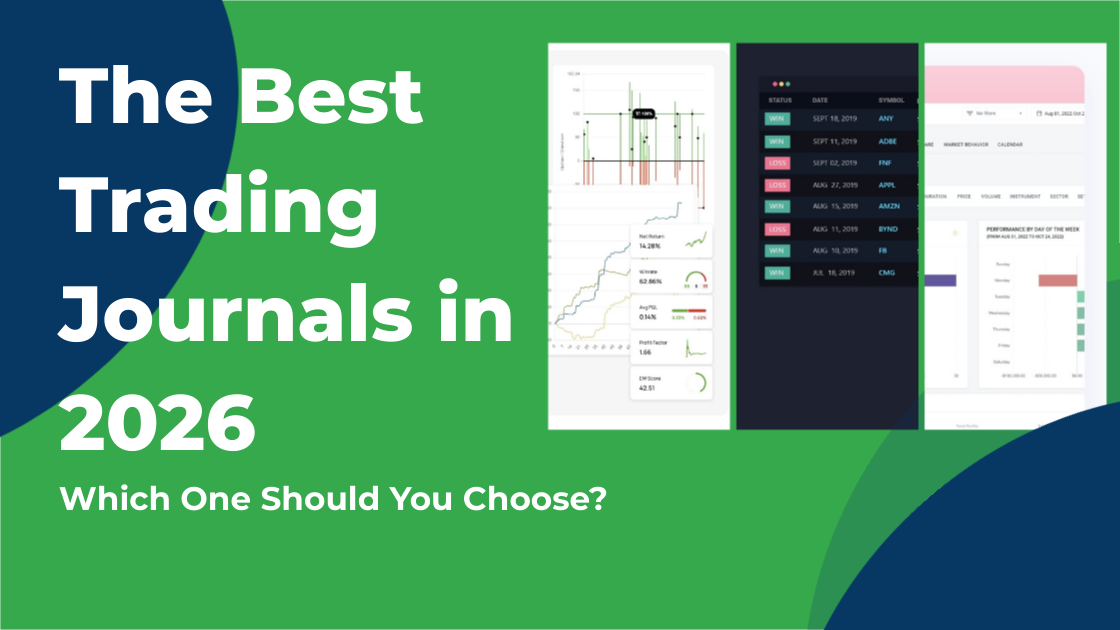Supply and Demand Trading in 2026
We have been trading supply and demand strategies for over ten years, and they have stood the test of time remarkably well. Supply and demand is...
5 min read
Rolf
Jul 8, 2015 8:00:00 PM

Being emotionally attached to a single trade is a very dangerous state to be in because it often leads to wrong decisions and disastrous outcomes. However, most traders experience trade attachment on a regular basis and it causes them to lose money although it could have been avoided or at least limited. The difference between a professional and an amateur trader is not that the professional doesn’t lose trades – he loses all the time – but that he knows how to lose correctly and move on.
The following article explains why we get emotionally attached to trades and how to overcome this problem.
 The flight or fight response is triggered when we perceive an external threat and, as the name implies, it makes us either become aggressive and fight or run away from the perceived threat. This primitive reaction stems from our ancestors who constantly had to be aware of dangerous animals or hostile tribes attacking them.
The flight or fight response is triggered when we perceive an external threat and, as the name implies, it makes us either become aggressive and fight or run away from the perceived threat. This primitive reaction stems from our ancestors who constantly had to be aware of dangerous animals or hostile tribes attacking them.
The flight or fight response is caused by changes in our bodies to be ready to take action. The nervous system causes our heart to beat faster, our breathing becomes faster and shallower, we might start to sweat and our blood sugar and adrenaline levels increase as well. Although these changes are necessary when you have to deal with a dangerous animal attacking you, when it comes to making trading decisions, these reactions can be harmful; sitting in front of your screen, dealing with a trade that is going against you and sweating, having a fast beating heart and breathing unnaturally will inevitable result in making the wrong assumptions and decisions.
Attachment in our daily life’s’ and our social relationships is a good thing and helps us bond with people, make friends and have a good family life. In trading, attachment is completely inappropriate.
When we are attached to our trade, we stop making rational and sound trading decisions, but emotions take over and our decisions become impulsive. Furthermore, we don’t evaluate and process information about our trade correctly anymore. When traders are attached to a trade they look for outside confirmation to stay in a losing trade longer and dismiss signs that it’s time to get out. All these factors interfere with our ability to make objective and rational decisions about the market, the charts and our trade.
A trader who is not emotionally attached to his trade (detached) acts in a process-oriented mindset and does not judge his abilities or his system’s abilities by the outcome of a trade, but by how he made his decision.
It is important to understand that you will always experience emotions to some degree and that you can’t avoid emotions, but you are not making impulsive trading decisions and even under pressure or when dealing with a position that is going against you, you are able evaluate the situation objectively and make rational trading decisions based on your trading plan.
A cyclist who loses a race can either feel as a failure and be depressed or he can objectively analyze what caused him to lose and improve for the next time.
Golf is another great example. Professional golfers focus on the process of a single shot rather than on the potential outcome they desire. By focusing on the shot alone, they make sure that they adhere to their routines and, thus, achieve the best shot possible without thinking about the implications of the outcome. “What if the shot doesn’t go where I want to go?” is a very bad starting place if you want to achieve good results and it creates a negative mindset even before you are swinging the golf club.
When it comes to trading, a trader has to make sure that he performs a great analysis and creates a good and thought out trading plan before he enters a trade. By making sure that he is prepared for all eventualities and having done his due diligence, he can be sure that he did everything possible and whether the trade is going to be a loser or a winner is not in his hands anymore and not (necessarily) his mistake.
Although trading like an emotionless machine is not possible and also should not be the goal (see suppressing emotions in point 3), a trader can achieve a more professional mindset by going through the following 7 steps.
1) Watch your language
Do you use words or have thoughts that imply that you are hoping for a certain outcome or are you using very emotional words? Observe yourself to get a sense of what is affecting your state and your trading decisions.
2) Don’t suppress your feeling
Suppressing feeling and emotions is not only counterproductive, but should not be the goal of yours. Although you still experience emotions, it is important that you remain in control over your actions and do not give in to impulsive trading decisions. Record your emotions in your trading journal to see the impacts and when they are most likely to happen and download our emotions cheat sheet to see which emotions impact your decisions.
3) You are more than your last trade
Although having self-esteem and confidence in your method is very important, letting your ego get in the way when you are making trading decisions is fatal. As we have said earlier, focus on process-oriented thinking, do your due diligence and be prepared for all eventualities. But then, don’t judge your abilities based on the outcome of a trade and think long-term. One trade does not mean anything in a trader’s life.
4) Utilize downtime and relax
Some traders report that they meditate or use other relaxation techniques such as deep “belly breathing” to deal with anxiousness or stress. When you notice that your emotional state changes (fast breathing, you start sweating or you feel hot), the flight or fight response is about to take over. Step away from the desk to cool down and relax to avoid impulsive trading mistakes.
Also, listening to relaxing music and don’t expos yourself to stress, hectic or other factors during trading decisions also helps control your state of mind. This also means that you should check your trading environment and eliminate disturbing factors.
5) Don’t watch your live P&L
Constantly watching your P&L go up and down with every price tick is a very bad habit that has significant impacts on how you make your trading decisions. When you see that price is going against you in a winning trade and that your P&L is going down, you are more likely to close a trade too early although no clear exit signals are present.
Instead, focus on your charts and what you can objectively observe. Always cross-check with your trading plan to build confidence and trust and to avoid impulsive trading decisions.
6) Avoid hindsight
Focus on the Now and don’t dwell over the past or worry about the future. Traders who are influenced by hindsight often feel bad because it becomes clear what they should have done, which then leads to revenge-trading and other mistakes.
The longer you live in the past, the less future you have to enjoy. – Unknown
7) Have a balanced life
Trading should not be the main part of your life because negative trading results will lead to low self-esteem, depression and lack of drive. Having hobbies, doing sports and having a good family life will help you go through bad times easier and puts trading into perspective. People who work in their regular jobs and only trade part-time often find it easier to deal with the emotional aspects of trading because they don’t depend on their trading results.

We have been trading supply and demand strategies for over ten years, and they have stood the test of time remarkably well. Supply and demand is...

3 min read
Choosing the right trading journal is essential for traders wanting to analyze performance, refine strategies, and improve consistency. In this...

3 min read
“95% of all traders fail” is the most commonly used trading related statistic around the internet. But no research paper exists that proves this...